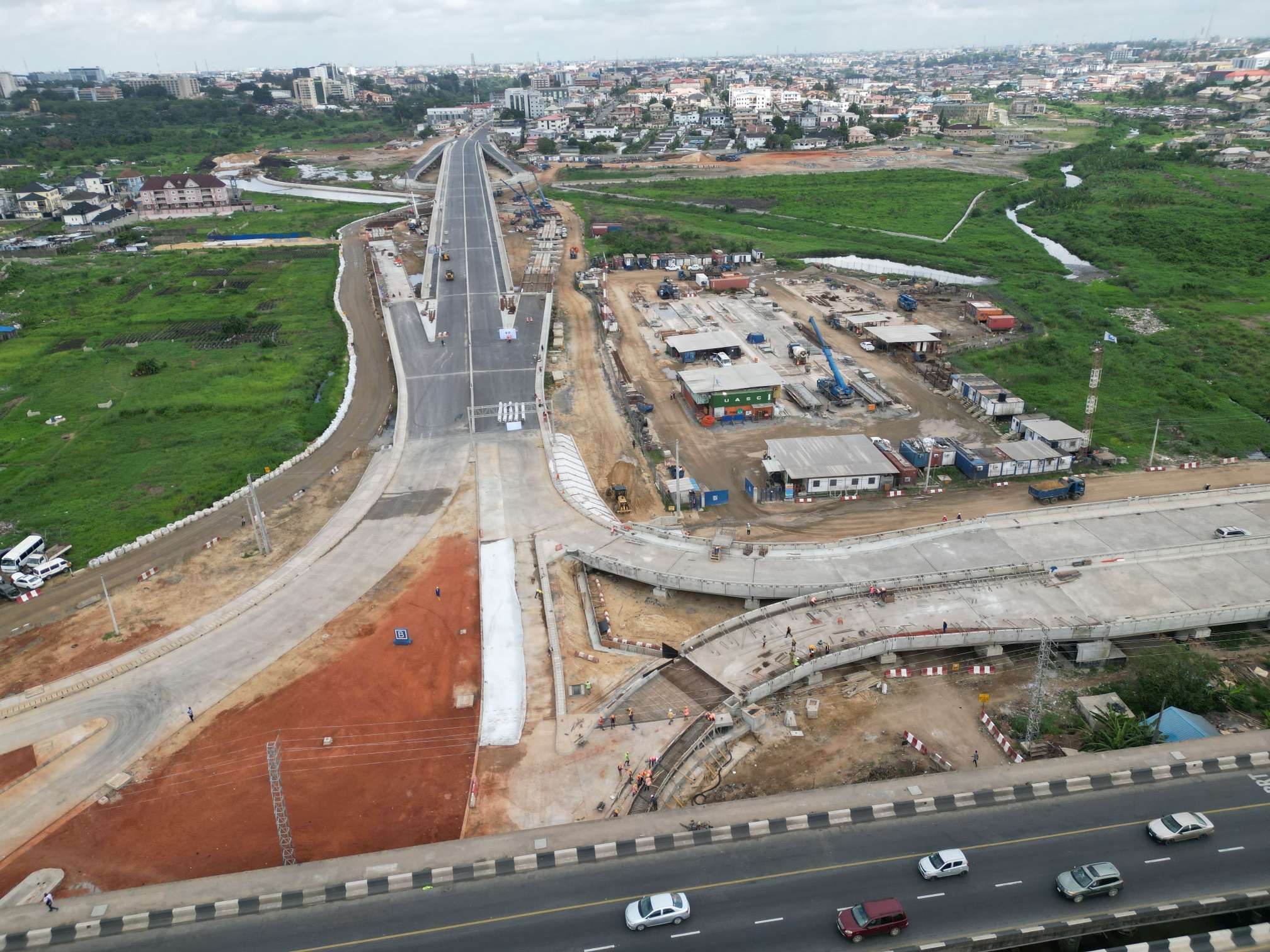Business
Julius Berger Promises to Deliver Lasting Solution to Lagos Traffic Congestion

Julius Berger Nigeria Plc is nearing completion of the transformative Lagos-Opebi-Mende Roads and Bridges project, promising a permanent solution to Lagos’ notorious traffic congestion.
Last week, the project’s manager, Dymitry Denysenko, announced that significant progress has been made and that the May 2025 deadline for handover remains unchanged.
“Although we continue to navigate complex engineering challenges to deliver a lasting solution to Lagos’ traffic congestion, the May 2025 handover timeline to our client remains sacrosanct,” Denysenko stated.
He emphasized that each completed milestone is bringing Lagos closer to revolutionizing mobility within the Ikeja-Ojota corridor. “Once completed, this vital infrastructure will ease commuter stress, enhance connectivity, drive economic activity, and improve the overall transport experience in Lagos,” he said.
The Lagos-Opebi-Mende Road project is one of several high-impact infrastructure works being executed by Julius Berger across Nigeria. However, due to its strategic importance, Lagos State Governor Babajide Sanwo-Olu has classified it as one of his administration’s legacy projects.
With unwavering commitment, Julius Berger is finalizing work on a road and bridge network designed to alleviate the transportation challenges faced daily by Lagos residents.
The contract, awarded in 2022, includes the reconstruction of Opebi Road, construction of the Odo Alaro Bridge, two underpasses (Odo Alaro 1 and 2), construction of deck-on-pile link bridges, and the reconstruction of the Maryland U-turn.
Denysenko gave an update on the current status of the project, revealing that the reconstruction of Opebi Road, Odo Alaro Bridge, Odo Alaro Underpass 1, and the Maryland U-turn have all been completed. The deck-on-pile link bridges are also finished, while Odo Alaro Underpass 2 is nearing completion.
With a road length of 4.52km, 1500 bored piles with a depth of 40m, and a 640m bridge structure, the project is expected to significantly ease congestion on the Lagos mainland.
Commenting on the importance of the project, the Lagos State government noted: “It is a known fact that the people are the ultimate beneficiaries of development projects like this. As promised, the Sanwo-Olu-led government will continue to deliver the dividends of democracy through transformative infrastructure like the Opebi-Mende link road.”
Beyond the Ikeja axis, Julius Berger is also handling the reconstruction of several key roads on Lagos Island, including Idumagbo Avenue, Adeniji Adele, Ojo Giwa, Oroyinyin, Okoya, Moshalashi, and Iga-Iduganran Streets. These roads have long suffered from severe traffic congestion that hampers the movement of goods and services.
According to Governor Sanwo-Olu, reconstruction in such densely populated areas is intended to provide a more conducive business environment and promote equal opportunities for economic advancement.
Christl Thomas, Julius Berger’s Regional Manager, Technical (Region West), remarked that the company delivers infrastructure to the highest standards. “Look at what we’ve begun at Idumagbo—it’s a sign of what’s to come. We will extensively resolve the traffic issues in that area,” he affirmed.
Thomas also highlighted that Lagos, as one of the world’s most crowded cities, accounts for 40% of Nigeria’s automobile registrations. “Every day, Lagos commuters spend an average of three hours in traffic. This congestion severely impacts productivity and quality of life,” he said.
Urban planner Soji Wilson echoed this view, noting that the volume of vehicles on Lagos roads far exceeds the capacity of the traffic network. “Traffic congestion happens when the demand exceeds what the road can handle. Julius Berger’s intervention is undoubtedly a step in the right direction,” Wilson said.
Denysenko concluded by pointing out that Lagos, despite being Nigeria’s smallest state geographically, has the highest urban population—about 24.5 million people. “This combination of limited space and dense population is why traffic easily becomes overwhelming. But Julius Berger is here to deliver lasting solutions,” he affirmed.


